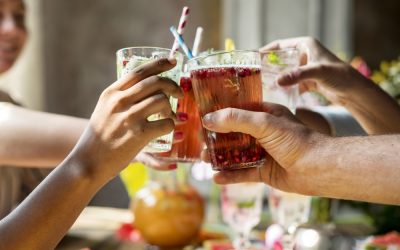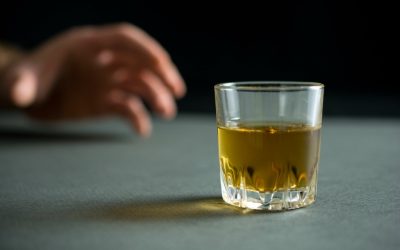
The concept of harm reduction, along with various modalities, offers a flexible and personalized approach to cater to the unique needs and circumstances of each individual on their journey to recovery. Experts acknowledge addiction’s multifaceted nature, encompassing physiological, psychological, and social components. A strong support system, adherence to an after-care plan, a recovery-friendly environment, and seeking help during stress reduce the risk of relapse. In treatment settings, clinical diagnoses and health problems often focus on behavioral changes as a fundamental element for health prevention and maintenance. Establishing rapport between client and practitioner becomes pivotal, with identified short-term and long-term goals pursued actively through client motivation.
Addiction can happen to anyone

Treatment enables people to counteract addiction’s disruptive effects on their brain and behavior and regain control of their lives. If you or a loved one is starting the recovery journey, or you are curious about what it means, this article will help you understand what the stages of change in the recovery process are, different types of programs and treatment options you may encounter. Research has identified relapse patterns in adolescents and adults recovering from addiction.
‘ – Understand its impact on behavior, health risks, and side effects. Demystify the acronym HALT for better emotional well-being and effective self-care strategies. Learn effective strategies for addressing alcohol with children to promote healthy conversations and understanding.
Factors associated with reductions in substance use

While many different types of recovery meetings exist, they all provide members with an opportunity to meet and support peers.10 Attending recovery meetings is also an effective way to build a sober support network. Through motivational interviewing, therapists inspire patients to alter behaviors that negatively impact their health.5 This modality is ideal for addicted individuals who are unmotivated or unprepared for change. It is also effective when treating those who are hostile to the idea of transformation.
Social and Emotional Impacts
A medical term meaning that major disease symptoms are eliminated or diminished below a pre-determined, harmful level. Seasonal affective disorder, or SAD, is a condition in which some people experience a significant mood change when the seasons change. Screen4Success provides an easy way for parents and caregivers to identify areas where their children may benefit from additional support. If these emotions become excessive, http://robofest2012.ru/page/7/ they can hold you back from recovery. If you are trying to maintain a sober lifestyle, those feelings can become toxic and contribute to relapse if you don’t deal with them properly.
- The digital gallery features over 280 selected artworks in celebration of National Recovery Month.
- Crafting messages that resonate with their real lives puts you ahead.
- Some 12-Step meetings are targeted at specific populations, such as men, women, or members of the LGBT community.
- Further, attrition is high among those who do attend 12-step meetings, particularly early on (Fiorentine, 1999; Laudet et al., 2007; McKay, Merikle, Mulvaney, Weiss, & Koppenhaver, 2001; Timko, Finney, Moos, Moos, & Steinbaum, 1993).
- If you were active in your addiction for a period of time, you may have developed financial problems.
- There, “recovery” typically vanishes, to be replaced without explanation by “abstinence” (e.g., Fiorentine & Hillhouse, 2001).
- A full-time facility provides a supportive environment to help people recover without distractions or temptations.
- Processing these repressed emotions empowers patients to understand how their past affects their current decision-making, behavior, and relationships.
- One widely used model can be summed up in the acronym CHIME, identifying the key ingredients of recovery.
- However, no research has yet examined whether participation in these activities produces a significant benefit beyond what might be obtained from other RSS.
- But some triggers can’t be avoided, and, further, the human brain, with its magnificent powers of association and thinking, can generate its own.
- Sometimes one of the most helpful ways to learn about treatment is to speak with someone who understands the recovery process and the types of treatment options available.
For example, SAMHSA’s Recovery Community Services Program made advancing recovery in diverse communities a central goal and helped support organizations serving a broad range of ethnic, racial, and sexual minority communities. Further, 12-step fellowships such as AA and NA have a long history of supporting meeting spaces that are specific to women; Lesbian, Gay, Bisexual, and Transgender (LGBT) populations; young people; and other groups, including meetings that are conducted in other languages. Individuals may not progress linearly through the stages of change; some take steps forward and then regress. For instance, someone aiming for alcohol abstinence may initially opt for moderation. The concept of recovery varies individually, with not everyone considering full abstinence as indicative of recovery. Residents are expected to abstain from drugs and alcohol, actively work on their recoveries, and follow the house rules.
Self help group that embraces rationality and scientific knowledge and does not include any spiritual content; believes that abstinence can be achieved through group support and through making sobriety one’s priority in life. Funding will support evidence-based, holistic practices that address the overdose crisis. The navigator displays state-by-state credentialing and licensure requirements for current and aspiring behavioral health professionals. By Buddy TBuddy T is a writer and founding member of the Online Al-Anon Outreach Committee with decades of experience writing about alcoholism. Because he is a member of a support group that stresses the importance of anonymity at the public level, he does not use his photograph or his real name on this website. If you’re involved in a 12-step program, you likely already know the importance of milestones.

National Grief Awareness Week
The role https://www.languages-study.com/english-5000words.html of epigenetics, where environmental factors can switch gene expression “on” or “off” without changing the underlying DNA. The neurological characteristics that may predispose people to problematic use. Resolving the problematic use on their own (called unassisted or natural recovery). Taking a supportive approach to addressing recurrence of use, should it occur.

What is an SUD?
Building upon http://котокафемира.рф/204452717-kotik-ploho-est-tolko-50.php Carl Rogers’ person-centered approach, motivational interviewing is a counseling method that incentivizes participants to change their behavior. It is most effective for the treatment of addiction and the management of physical illnesses and ailments. SUDs can lead to significant problems in all aspects of a person’s life. Patterns of symptoms resulting from substance use (drugs or alcohol) can help a doctor diagnose a person with a SUD or SUDs and connect them to appropriate treatment. For people with addictions to drugs like stimulants or cannabis, no medications are currently available to assist in treatment, so treatment consists of behavioral therapies.
